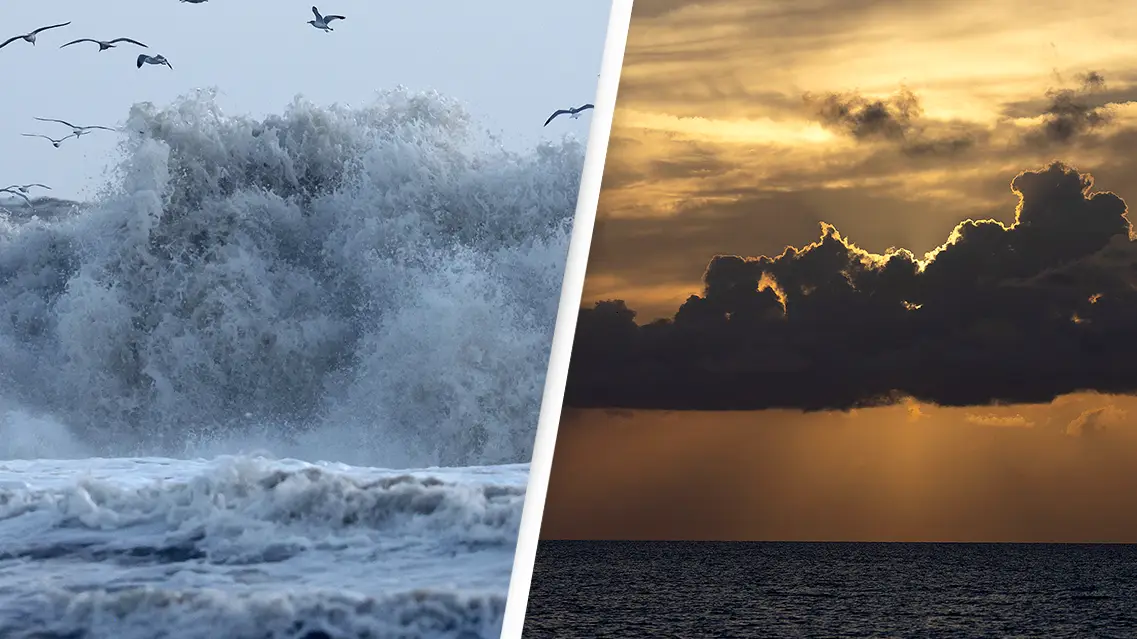
New forecasts suggest the Gulf Stream could collapse as early as 2025, which could bring about 'catastrophic impacts for the climate'.
The Gulf Stream, also known as the Atlantic Meridional Overturning Circulation (AMOC), is a system of warm ocean currents around the Atlantic that helps stabilize the weather in both Europe and North America.
The current carries warmer waters up to the North Pole, where it then cools down and travels back south.

Advert
Although, new research from Professor Peter Ditlevsen and Professor Susanne Ditlevsen, from the University of Copenhagen, forecast a full collapse of the current will happen by the mid-century.
Their most drastic model predicts the Gulf could collapse as soon as 2025.
The pair used a variety of models to predict the likelihood of the event, which has been published in a recent journal article in Nature Communications.
If the Gulf Stream were to collapse, scientists predict that it would drastically impact the world’s climate, leading to colder weather and more storms in west Europe.
Some estimates suggest its collapse could drop temperatures in Europe by as much as 15 degrees.
In North America, a collapse of the Gulf Stream would see a sea level rise on the East coast on top of also endangering the Amazon rainforest.
However, the new data contradicts the Intergovernmental Panel on Climate Change’s models, which suggest that a full collapse of the Gulf Stream is unlikely to occur in the 21st century.
Speaking to the BCC, Professor Penny Holliday from the National Oceanography Centre was sceptical about the new research.
“We know that there’s a possibility that the AMOC could stop what it’s doing now at some point, but it’s really hard to have certainty about that,” the professor said.

“If my neighbor asked me if I should worry about heat waves or the AMOC collapse, I’d say worry about the temperatures. We know that it is already happening and will get worse."
But even if the models are inaccurate, scientists are in agreement that there is some cause for concern regarding the Gulf Stream.
Back in 2018, the currents were understood to be at its weakest point in 1,600 years, with researchers pointing to man-made climate change as one of the key causes.
Further research in 2021 suggested the currents were ‘nearing a shutdown’, marking a tipping point in the fight against global warming.
Part of the cause is an influx of fresh water that is coming from the melting Greenland ice cap at a higher than average level.
Topics: News, World News, Climate Change, Weather
